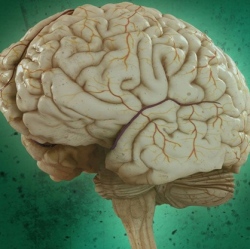
A team found that disease-linked mutations disrupt genes contributing to excitatory and inhibitory signalling, the balance of which plays a crucial role in healthy brain development and function. The breakthrough builds on two landmark studies published in the journal Nature.
"We’re finally starting to understand what goes wrong in schizophrenia," says lead author Dr Andrew Pocklington from Cardiff University’s MRC Centre for Neuropsychiatric Genetics and Genomics.
"Our study marks a significant step towards understanding the biology underpinning schizophrenia, which is an incredibly complex condition and has up until very recently kept scientists largely mystified as to its origins.
"We now have what we hope is a pretty sizeable piece of the jigsaw puzzle that will help us develop a coherent model of the disease, while helping us to rule out some of the alternatives.
"A reliable model of disease is urgently needed to direct future efforts in developing new treatments, which haven’t really improved a great deal since the 1970s."
